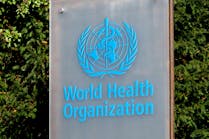Trump Implements 10% Base Tariff and Expands Reciprocal Tariffs, With Pharma Exemptions
Key takeaways for healthcare professionals:
- Tariffs on medical products: Starting April 5, a 10% tariff on imported goods, including medical supplies, may raise healthcare costs and strain availability.
- Concerns for pharmaceuticals and medtech: Tariffs could impact medical technology and pharmaceutical innovation, leading to higher costs and potential job losses, although pharmaceuticals are exempt from reciprocal tariffs.
- Focus on domestic manufacturing: The U.S. aims to boost domestic production, improving supply chain resilience and reducing foreign dependency.
- New certification for U.S.-made products: The "AMMA CERTIFIED USA MADE PRODUCT" seal helps identify domestically produced medical supplies.
The Trump administration announced on April 2 that it will implement a new tariff plan starting April 5, imposing a 10% universal tariff on imported goods from all countries. Additionally, beginning April 9, the U.S. will apply reciprocal tariffs on certain countries with which it has large trade deficits, in addition to the universal tariff. However, certain items—such as pharmaceuticals, semiconductors, and copper—will be exempt from these reciprocal tariffs. The previously announced tariffs for Canada and Mexico will remain unaffected by this new measure.
The president also signed an executive order to close the "de minimis loophole," a trade policy established by Congress that permits duty-free shipments valued at less than $800, specifically for Chinese imports. While the president had initially planned to address this earlier in the term, the effort was delayed due to what the administration referred to as logistical challenges.
Trump said during the executive order signing at the White House Rose Garden, “Jobs and factories will come roaring back into our country, and you see it happening already. We will supercharge our domestic industrial base. We will pry open foreign markets and break down foreign trade barriers, and ultimately, more production at home will mean stronger competition and lower prices for consumers."
Regarding pharmaceuticals specifically, Trump commented, “The United States can no longer produce enough antibiotics to treat our sick. We have a tremendous problem. We have to go to foreign countries to treat our sick. If anything ever happened, from a war standpoint, we wouldn't be able to do it. We import virtually all of our computers, phones, televisions, and electronics. We used to dominate the field, and now we import it all from different countries.”
Association comments
Several healthcare associations have issued comments on the tariff plan.
Soumi Saha, senior vice president of Government Affairs, Premier Inc., is credited with the following statement:
“Targeted and thoughtful tariffs on healthcare products could offer a chance to bolster supply resilience and ensure access to critical medical supplies. But they cannot live in a vacuum, lest they become just another cost without real impact. Premier believes that tariffs need to be put to work, funding innovation that ensures long-term stability and a stronger, more resilient U.S. supply chain.
“Premier champions a comprehensive strategy, including leveraging tariff funds to expand domestic and nearshore manufacturing of essential medical products, incentivizing healthcare providers and the U.S. government to buy American, and prioritizing U.S. Food and Drug Administration (FDA) approvals for domestically produced medical goods.
“A strong, sustainable supply chain isn’t just good policy—it’s the foundation of high-quality, affordable, and accessible healthcare for all Americans. Premier stands ready to partner with policymakers to build lasting solutions that make a difference and ensure American patients have access to the medical products they need.”
The Medtech Association, AdvaMed, released a statement from president and CEO Scott Whitaker. He said, “I am disappointed in the news of the Administration’s intent to levy broad tariffs that will negatively impact American medical technology and innovation. The medtech industry is an American success story made up of remarkable American companies that are saving, improving, and extending lives. If implemented as proposed, broad-based tariffs of this nature would act much as an excise tax. It will have a negative impact on innovation, cost jobs, and increase overall costs to the health care system. Historically, industries with a meaningful humanitarian mission have been exempted from broad tariffs, and as a result we have seen no to low tariffs on medtech from all key trading partners.
“While disappointed in this initial announcement, we look forward to continuing our conversations with the White House to help them understand the important role the medtech industry plays in our health care ecosystem, the value it provides to patients, and the importance of the industry to continued U.S. economic growth. The medtech industry should be exempted from these tariffs.”
The American Medical Manufacturers Association (AMMA) applauded Trump’s announcement. A press release shared with Healthcare Purchasing News (HPN) stated, “Trump's plans to implement targeted, reciprocal tariffs on imports are critical to rebuilding America’s manufacturing base, safeguarding public health, and ensuring national security. Domestic manufacturers of critical medical supplies and personal protective equipment (PPE) applauded today’s announcement. AMMA agrees with the President’s assertion that these products can and should be made in the USA and would be available to industry, healthcare, public safety, and first responders tariff-free.”
Eric Axel, executive director of AMMA, was quoted in the press release saying that, “Today’s tariffs are focused on China and all Southeast Asian nations copying or being influenced by China’s behavior—nations we call China 2.0. President Trump recognizes that these countries have usurped and taken advantage of our national security resilience through currency manipulation, state subsidies, and trade barriers. What started with China has spread through the region. The President has said ‘enough.’”
Dan Izhaky, president of AMMA and a ‘PPE entrepreneur,’ was also quoted supporting the plan. He said, “America’s front-line workers deserve policies that put them first. Reciprocal tariffs aren’t just about fairness; they’re about ensuring that our nation can produce life-saving medical supplies when they matter most. Every mask, glove, or syringe we make here strengthens our economy and protects our people.”
The press release added, “For decades, foreign producers have exploited unfair trade practices to flood U.S. markets with low-cost imports. They have also exploited trade loopholes, built factories in neighboring countries, and ignored global labor standards to undercut domestic manufacturers and hollow out communities reliant on industrial jobs. Ending these practices is a bipartisan priority as leaders in both houses of Congress have introduced legislation to hold these nations accountable.”
Axel commented on the consequences in the press release as well. He said, “We’ve seen what happens when we rely on foreign supply chains during a crisis. Delays, shortages, and uncertainty threaten American lives. We can level the playing field with reciprocal tariffs. American companies are ready to compete in the marketplace if it's a fair fight.”
On April 3, AMMA shared another press release with HPN introducing its “AMMA CERTIFIED USA MADE PRODUCT” seal, a new certification intended to highlight domestically manufactured critical medical supplies and PPE. The press release said, “This initiative is crucial as the United States strengthens its commitment to domestic production following the President’s announcement of reciprocal tariffs to reduce reliance on imports.”
Axel was again quoted in the press release on the seal. He said, “This seal is more than just a label. It’s a symbol of trust and transparency. It assures healthcare providers, consumers, and corporate buyers that they choose products that meet the highest quality and safety standards while supporting American jobs. In an era where global supply chains are increasingly unpredictable, investing in domestic manufacturing is not just smart—it’s essential.”
To display the "AMMA CERTIFIED USA MADE PRODUCT" seal on their products, manufacturers must first become members of AMMA and agree to the terms and conditions set by the association. Once approved, they can feature the seal on their packaging, highlighting their dedication to American manufacturing quality.
Canadian pharmaceuticals
On April 2 we reported that new analysis published in JAMA found that “President Donald Trump’s trade tariffs on Canadian pharmaceuticals are expected to increase costs in the United States and strain drug supply chains.”
Scientists wrote in a research letter that the U.S. “imports 400 different ready-for-use medications from Canada, 28 of which have no alternative supplier.” The lead author wrote that the tariffs “could affect a wide range of medications, from antibiotics to mental health treatments,” and straining the supply chain “could trigger drug shortages and jeopardize patient care.”
The authors found that “22,082 drug products were sold in the U.S. market from the fourth quarter of 2022 to the third quarter of 2023, of which 411 (1.9%) were manufactured in Canada, representing $3 billion in sales.” Of those 411 products, “79% (323) were generic, and 21% (88) were brand-name products, including 20 (4.9%) under patent protection.”

Janette Wider | Editor-in-Chief
Janette Wider is Editor-in-Chief for Healthcare Purchasing News.





